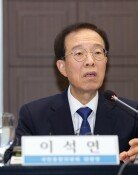First lady hiding on Telegram should apologize in front of the public
First lady hiding on Telegram should apologize in front of the public
Posted July. 11, 2024 07:52,
Updated July. 11, 2024 07:52
“The unofficial policy decision-making system has the upper hand over the official channel, which has become so untouchable a reality that no one even can call it into question.”
This phrase sounds like an acute critique of the ongoing controversy over Han Dong-hoon, former ruling PPP interim leader, allegedly leaving First Lady Kim Keon-hee’s Telegram messages on read, bringing chaos to the July 23 party national convention. Surprisingly, it is cited in “The Unmasked Face and the Invisible Hand” (1994), published 30 years ago by honorary professor Park Sung-gwan of Seoul National University. He points out that in Korean politics, unofficial communication channels play a more significant role in making big decisions than official media, which are relegated as a “tool in name only.” Thirty years after his insightful remarks, unofficial communication channels are becoming even more private and secretive, with social media gaining dominance.
An invisible hand was involved. It was the first lady’s hands that sent Telegram messages to the then-PPP interim leader this January. Around Jan. 17, when Kim Kyung-yul, a former member of the ruling People Power Party's leadership committee, criticized the first lady for “her corrupt private life,” likening it to the extravagance of Marie Antoinette, many demanded her candid apology for allegedly receiving a Dior luxury bag. Two days later, she sent messages to Han, saying, “I am sincerely sorry that things are only getting worse because of my fault,” and, “In politics, there are some cases that make apologies happen. Nevertheless, I will go along with you.” Han did not reply. As it created much controversy six months later, he said, “Contextually, her message only sounded like a series of excuses for why she should not apologize.”
Around the same time, First Lady Kim reportedly sent people around her Telegram messages involving a conservative YouTuber’s remarks, saying, “Once she makes an apology, the main opposition will attack and bite like a stray dog.” Even with some messages being disclosed by word of mouth, the controversy is only growing to determine if the First Lady intended to apologize sincerely or if she meddled in governance. After all, only the first lady has become the center of attention in the national convention race.
Moreover, there is a growing suspicion that another invisible hand was at play to manipulate online comments. If it is true, manipulating public opinions behind the scenes can be an illegal act. Of course, it does not seem like the right thing to do to evaluate lawmakers, each of whom represents the legislature, based on posts uploaded on Facebook, Twitter, and blogs, just as the main opposition does because it will only issue a plethora of volatile messages targeting strong supporters.
The invisible hand only causes misunderstandings. PPP lawmaker Kim Jae-sub said, “If she had been willing to say sorry, she should have headed to the presidential office, which is a more official channel to communicate with the public.” In fact, it is not even the first time that the current administration has ended up in controversies involving the disclosure of Telegram messages. In July 2022, messages sent from President Yoon to the then-party chairman, Kweon Seong-dong, were inadvertently exposed. Involving a cherry-like emoticon with a thumbs up, the president was caught writing, “Things have turned around since the chairman aiming inwards at us was changed.” Kweon apologized, saying, “It is all my fault to have some private conversation with the president leaked carelessly and cause misunderstandings and controversy.”
The public demands that communication take place openly. Private messages exchanged on Telegram or video clips and images on social media do not make for true communication. Candidate Han did demand an apology, unmasked. However, it is still unclear whether the First Lady was serious about saying sorry – which can only be presumed merely based on her Telegram messages sent to people around her. Of course, we know all too well that it is hard to simply decide upon the First Lady’s apology. Considering that it is one of the most difficult decisions to make, the administration should set up the Office of the First Lady to help make official decisions and rebuild the public's trust.




![[속보]美 “미국인은 이란 당장 떠나라” 대사관 긴급 공지](https://dimg.donga.com/c/138/175/90/1/wps/NEWS/IMAGE/2026/01/13/133147285.1.jpg)


